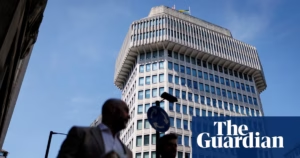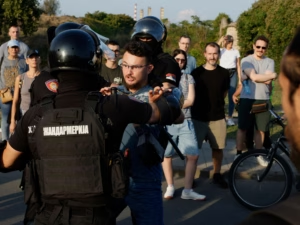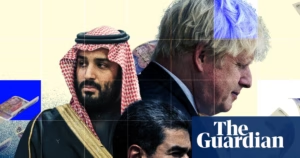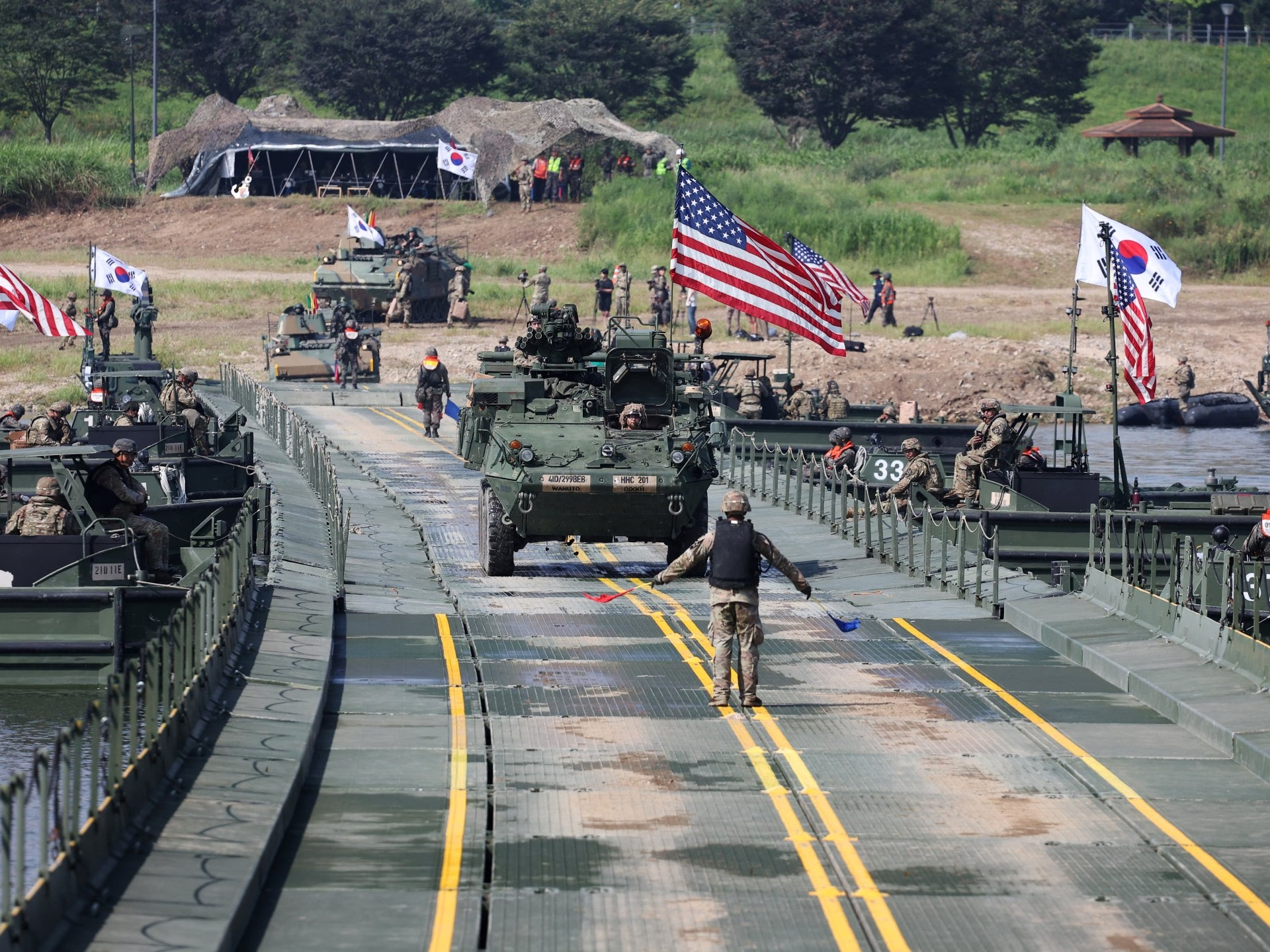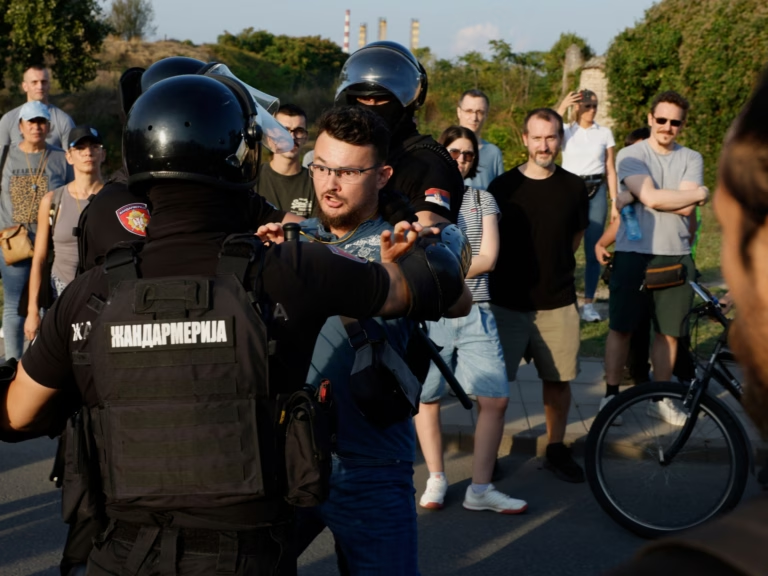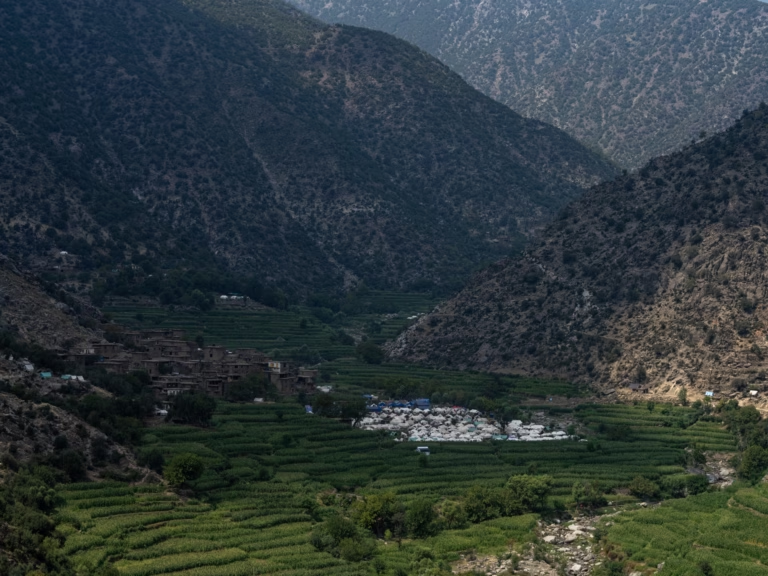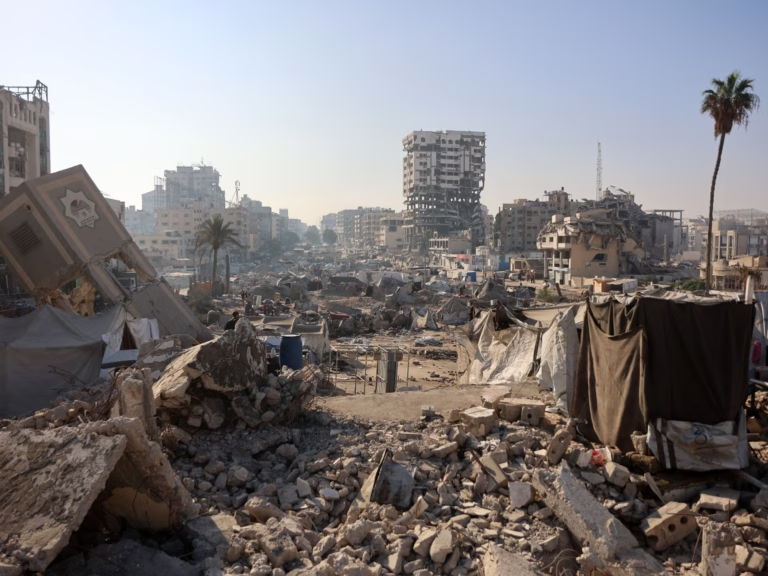The exercises, which are set to begin the following day, will combine naval, air, and missile defense off Jeju Island. Known as the “Freedom Edge,” the drills will continue until Friday.
Recommended Stories
Kim Yo Jong, who is the vice department director of the North Korean governing party’s central committee, referred to the drills as a “dangerous idea.”
“This reminds us that the reckless display of power by the US, Japan, and South Korea in the wrong places, namely around the Democratic People’s Republic of Korea, will undoubtedly bring about negative consequences for themselves,” Kim Yo Jong stated, using the official name for North Korea.
This comes after her brother visited weapons research facilities this week and announced that North Korea “would put forward the policy of simultaneously pushing forward the building of nuclear forces and conventional armed forces.”
North Korea views the trilateral drills as “scenarios for limited or full-scale nuclear strikes and attempts to neutralise its launch platforms,” according to Hong Min, a senior analyst at the Korea Institute for National Unification, who spoke to the AFP news agency.
“The North is likely using the allied exercises as a pretext to push ahead with nuclear modernisation and conventional upgrades,” he added.
In addition to the trilateral exercises, the US and South Korea also plan to conduct the “Iron Mace” tabletop exercises next week to integrate their conventional and nuclear capabilities against North Korea’s threats, according to South Korean local media.
South Korea is home to approximately 28,500 American soldiers.
“Iron Mace” will be the first such drills taking place under US President Donald Trump and newly elected South Korean President Lee Jae Myung, who have expressed a willingness to resume dialogue with North Korea.
If “hostile forces” continue to boast about their power through these joint drills, North Korea will take countermeasures “more clearly and strongly,” stated Pak Jong Chon, North Korea’s top party official, in a separate dispatch via the state news agency KCNA.
Since a failed summit with the US in 2019 on denuclearisation, North Korea has consistently stated it will not give up its nuclear weapons and has declared itself an “irreversible” nuclear state.
Kim Jong Un has been emboldened by the war in Ukraine, where he has secured critical support from Russia following the deployment of North Korean troops to fight alongside Moscow.
The mutual defense pact signed between Moscow and Pyongyang last year, during Russian President Vladimir Putin’s visit to the reclusive state, is one of the results of their growing ties.
